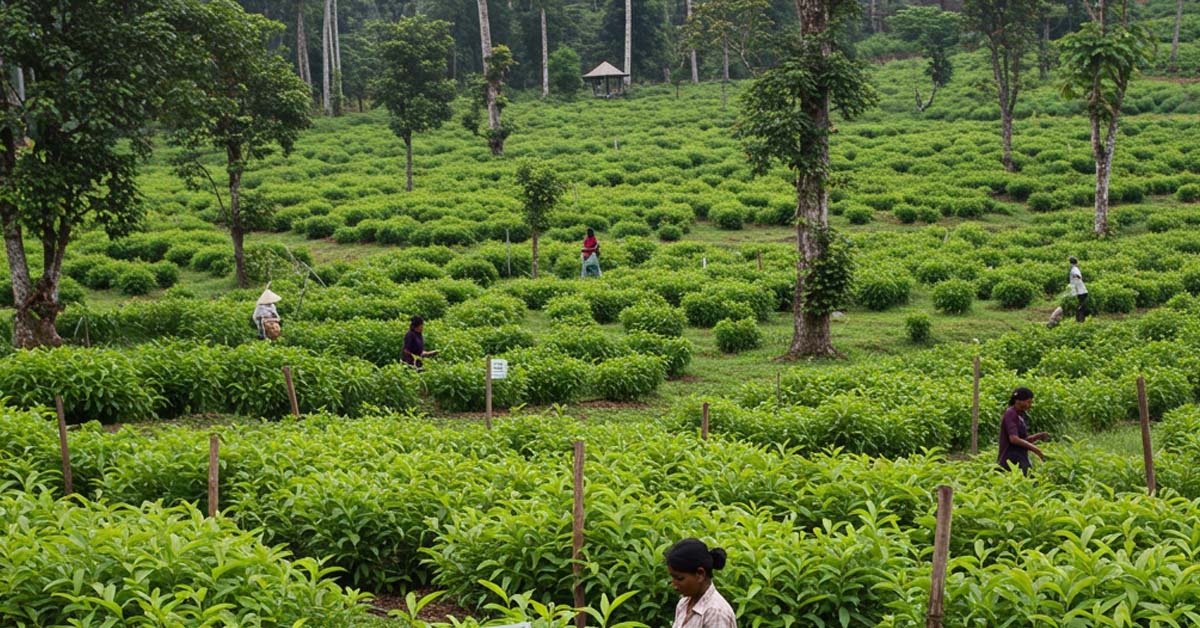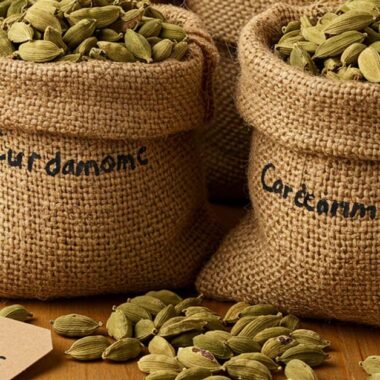As the global demand for cardamom continues to rise, it becomes more important than ever for cardamom farmers to adopt sustainable farming practices. Not only does this help protect the environment, but it also ensures that future generations can continue to grow and enjoy high-quality cardamom. From reducing environmental impact to enhancing farm productivity, sustainability plays a key role in the future of the cardamom industry. 🌱
Here are some sustainable practices cardamom farmers can implement to improve their yield while protecting the environment. 🌍
1. Organic Farming Practices 🌾
Switching from conventional to organic farming practices is a major step towards sustainability. By eliminating the use of chemical pesticides and synthetic fertilizers, cardamom farmers can help preserve soil health, protect biodiversity, and reduce the pollution of local water sources. Organic farming encourages the use of natural fertilizers (like compost or manure) and biological pest control methods, which can enhance soil fertility and promote long-term sustainability. 🌿
Benefits:
- Healthier soil and reduced soil erosion
- Improved water retention and nutrient cycling
- Reduced risk of chemical runoff and pollution
2. Water Conservation Techniques 💧
Water is a vital resource for cardamom cultivation, but in many areas, it can be scarce. Implementing water-saving techniques is crucial for ensuring that the crop is grown efficiently and sustainably. Drip irrigation, for instance, delivers water directly to the roots, reducing water waste and preventing over-irrigation. Farmers can also use rainwater harvesting systems to collect and store rainwater for irrigation during drier periods. 🌧️
Benefits:
- Reduces water wastage
- Increases water use efficiency
- Helps protect local water resources
3. Agroforestry and Intercropping 🌳
Integrating agroforestry and intercropping into cardamom farming can significantly enhance farm sustainability. Agroforestry involves planting trees alongside cardamom crops, providing shade and creating a more diverse ecosystem. Trees can also help with carbon sequestration and improve soil health by preventing erosion and enriching the soil with organic matter. Additionally, intercropping with other crops such as pepper, turmeric, or banana can reduce pest pressure and improve overall farm productivity. 🌿
Benefits:
- Enhances biodiversity
- Prevents soil erosion and improves soil quality
- Increases farm resilience to pests and diseases
4. Soil Health Management 🏞️
Maintaining healthy soil is essential for growing high-quality cardamom. Farmers can adopt soil health management practices such as cover cropping, crop rotation, and composting to improve soil fertility and structure. Cover crops like legumes fix nitrogen in the soil, improving its nutrient content and reducing the need for synthetic fertilizers. Composting organic waste, such as fallen leaves or agricultural residues, can also enrich the soil and boost microbial activity. 🌱
Benefits:
- Reduces dependence on chemical fertilizers
- Enhances soil structure and fertility
- Promotes a healthy soil ecosystem for better plant growth
5. Integrated Pest Management (IPM) 🐞
Rather than relying on harmful chemicals, cardamom farmers can implement Integrated Pest Management (IPM) strategies to control pests and diseases. IPM focuses on using a combination of methods, such as biological control agents, natural predators, and physical barriers (like netting or mulching) to prevent pest infestations. Farmers can also use organic pesticides when necessary, which are less harmful to the environment and beneficial organisms. 🦗
Benefits:
- Reduces pesticide use and chemical residues
- Protects beneficial insects and pollinators
- Promotes a healthier, balanced ecosystem on the farm
6. Composting and Organic Fertilization 🌿
Composting is an effective way to recycle organic waste into valuable fertilizer for cardamom plants. By composting farm waste like plant debris, manure, or kitchen scraps, farmers can create nutrient-rich soil amendments that improve soil health and promote sustainable cardamom cultivation. Organic fertilizers like composted manure or green manure provide essential nutrients without the harmful effects of synthetic fertilizers. 🌱
Benefits:
- Reduces waste and recycles organic matter
- Improves soil fertility and texture
- Reduces the need for synthetic chemical fertilizers
7. Energy Efficiency and Renewable Energy ⚡
Cardamom farming requires energy for various activities, such as irrigation, processing, and packaging. By adopting energy-efficient practices and utilizing renewable energy sources, farmers can reduce their environmental footprint. Installing solar panels or using biogas systems for energy needs can help farmers move toward a more sustainable future. 🌞
Benefits:
- Reduces reliance on non-renewable energy sources
- Lowers greenhouse gas emissions
- Lowers energy costs in the long run
8. Fair Trade and Ethical Sourcing 🤝
Incorporating fair trade practices into cardamom farming ensures that farmers receive a fair price for their crops and helps improve their working conditions. By working with ethical buyers and exporters, farmers can ensure that their produce is sold at a premium while supporting local communities and promoting sustainable livelihoods. Fair trade initiatives also encourage transparency in supply chains, ensuring that sustainable practices are maintained throughout the production process. 🌍
Benefits:
- Promotes fair wages and improved working conditions
- Encourages sustainable and ethical farming practices
- Supports local economies and communities
🌿 The Path Forward: Sustainable Cardamom Farming 🌍
As demand for cardamom continues to grow, sustainable farming practices are becoming increasingly important. By adopting organic farming, water conservation, agroforestry, and other sustainable techniques, farmers can help ensure that cardamom cultivation remains viable for future generations. These practices not only protect the environment but also improve the overall health of the farm, boost productivity, and allow farmers to produce high-quality cardamom sustainably.
If you’re a cardamom farmer looking to adopt sustainable practices, it’s important to start small, educate yourself on the latest sustainable farming techniques, and gradually implement changes that suit your farm’s specific needs. 🌱🌍
Looking for high-quality cardamom? Check out Greengold Guide’s cardamom products to add top-quality organic cardamom to your culinary creations! 🌿
Conclusion 🌿
Sustainable practices are crucial for the future of cardamom farming, not only to preserve the environment but also to ensure farmers can continue producing high-quality crops for years to come. By making small, sustainable changes today, cardamom farmers can help protect the planet while ensuring the future of this aromatic, valuable spice. 🌱🌍













